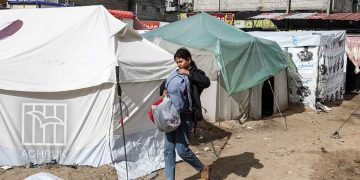Egypt’s Supreme State Security Prosecution has ordered the detention of lawyer Ayman Essam, the legal representative of the Tenants’ Defense Association, for 15 days pending investigation on charges of “joining a terrorist group” — a move that has sparked widespread concern over freedom of expression and the right to organize.
Essam was arrested after participating in activities opposing the proposed amendments to the old rent law. He had publicly rejected provisions that abruptly liberalize the relationship between landlords and tenants without offering sufficient protections for tenants.
He was subjected to enforced disappearance for three days following his arrest in Alexandria while on his way to attend the founding meeting of the association.
This incident occurs amid an escalating crackdown on critics of the draft law. The planned meeting of the Tenants’ Association was banned by authorities, while landlord conferences have been allowed to proceed freely — raising serious questions about the state’s neutrality in handling this sensitive social issue.
The proposed legal amendments grant landlords the right to reclaim rented units after a transition period, along with a one-time rent increase up to 20 times the current rate, followed by annual increases of 15%. This would impose an overwhelming financial burden on millions of families, without offering realistic housing alternatives or effective support for vulnerable groups.
What is happening is not merely a legal debate over contractual relations — it concerns the fate of millions of citizens whose livelihoods and housing stability depend on these agreements. Criminalizing dissent and arresting advocates for housing rights represents a direct threat to the right to organize, to freedom of expression, and to housing as a constitutionally protected human right.
This case serves as a real test of the state’s commitment to principles of social justice, and whether legislative reforms can be enacted without sacrificing the rights of the most vulnerable. Such reforms must not be imposed by force, but developed through inclusive dialogue and fair guarantees that preserve human dignity and the right to secure, stable housing.


























